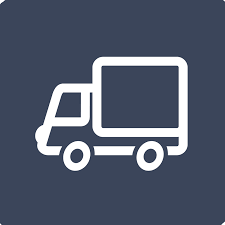The Benefits Of Electronic Invoices and Bills of Lading
Should your business switch to (Electronic Bill of Lading) EBOLs?
Key Takeaways in This Blog:
-
While electronic solutions are becoming increasingly popular, stats show many businesses still rely on paper documents.
-
An Electronic Bill of Lading can be created with the touch of a button, sent faster, and retrieved when needed, no matter where your team members are.
-
EBOLs and digital solutions enable you stay green and save on storage pace.
Traditionally, the processing of paper or PDF invoices has been done manually by Accounts Payable teams, resulting in significant labor expenses, long approval cycles and costing the business money in lost early payments, writes TechRadar.
Additionally, the 2019 Payables Insight Report by Levvel Research stated that when it comes to accounts payable workflow processes, almost a quarter (24%) of businesses still scan and email by hand, and 23% do everything manually.
The most recent State of Logistics’ report indicates billing, invoicing, and accounting services will soon be differentiated in the market. Additionally, in light of the situation worldwide resulting from COVID-19, digital supply chain solutions are more important than ever.
Similarly, when it comes to the Bill of Lading (BOL), one of the most important documents in global trade transactions, according to Trade Finance Global, “There has been a big push in the last few years to digitise the process of bills of lading and using electronic bills of lading more and more.” However, there is still some reliance on paper: the Journal of Commerce writes that in the Less-Than-Truckload (LTL) industry, “(...) after 20 years of seeking shipper cooperation to convert paper BOL to electronic, the LTL industry still handles about 75 percent of shipments tendered using paper.”
In this blog post, we’ll dive into some key ways that Electronic Bill of Lading (EBOL) and electronic invoices can benefit your supply chain operations.
1. Save Time
Electronic Bills of Lading
As with many digital solutions, EBOLs can help to reduce overhead and man-hours. The process of transferring paper bills of lading may take as long as 7-10 days, but with electronic solutions, they can be sent within a few moments of certain trading conditions being met.
Electronic Invoices
Our software allows you to create a digital invoice with the touch of a button and send it just as easily.
This helps your business by getting rid of delays caused by snail-mailed or easily-misplaced paper invoices, improves cash flow, and can help improve your supplier relationships.
It can also result in financial savings: According to the 2018 Worldwide Electronic Invoicing survey “the administrative costs and processing times for issuing and processing electronic documents are typically far lower than those for traditional paper documents. The savings come not only from reducing printing and postage costs, but also from adopting integrated processes for all invoice-related tasks.”
Additionally, digital billing and invoicing frees up your staff for other tasks. Surprisingly, despite the fact that digital and automated billing and invoicing processes have been available for many years, a general study of Chief Financial Officers this year revealed that “The accounts payable (AP) and accounts receivable (AR) functions remain the most labor-intensive part of finance and accounting teams' workload (...) About 50% of finance chiefs in the survey said the two functions continue to be the most manual of their staff's tasks.”
Digitization and automated processes can allow teams to re-organize their time more strategically. A 2018 interview in Supply Chain Brain noted: “The goal in many cases is to reduce human interaction and automate processes to the highest degree,” Smith says. “Then you can find other reasons to use those humans. With order processing, many customers are repurposing people that were interacting with those orders coming in to more valued processes.”
2. Accuracy
Electronic Bill of Lading
Since the Bill of Lading is one of the most important documents in shipping, ensuring accuracy and minimizing errors is critical.
The Journal of Commerce notes that, “In theory, an eBL helps all parties attached to a shipment avoid errors due to rekeying of information into multiple systems, as well as errors introduced when a BL is amended.”
Another article in the same publication notes that transcription errors, handwritten changes to the BOL can result in discrepancies, invoicing delays, and changes in charges. An entirely electronic product also reduces the need to use couriers and other traditional methods to send new copies of the amended documents to the correct parties.
Trade Finance Global also notes that electronic bills of lading, “are seen as the solution for the various factors and problems involved in the preparation, checking, transmission, hand over, payment and many other intrinsic activities involved in the process of a bill of lading, especially if you lose an original bill of lading.”
Routeique’s contactless-check in system will support EBOL, and Routeique will be able to generate EBOL for warehouse and order transfers.
Electronic Invoices
All invoices are stored directly on the Routeique platform. There, you can review, edit, print, or re-send them as necessary. We also integrate with your existing accounting software, so you can keep track of invoices and payments.
Through our DMS, if an item from an order is incorrect, it can be updated immediately by the driver. This change is immediately reflected in the invoice, which can then be signed and stamped as usual, without any re-printing or crossing-out.
All of this helps reduce errors, and ensures that in the case of any changes, everyone is on the same page with the most accurate, up-to-date information.
3. Create Paper-Free and Accessible Records
Making Your Business Greener
There are numerous benefits to making your operations paper-free. First of all, as we’ve covered in previous blogs, many organizations are concerned with creating greener supply chains. Reducing the number of printouts can be a part of this.
Saving On Storage Space
There’s a second reason why digitizing your financial documents can be beneficial--it can save significant amounts of space and provide insurance against damage.
A July 2020 article in Director of Finance outlines a scenario that may be relatable to many business owners:
“Businesses in the UK have a legal requirement to store supplier invoices for at least seven years, so just the costs of storing all this documentation in filing cabinets, or the risks with storing them as paper when they can be easily lost or damaged are enough of a problem.”
The article goes on to note that on top of the storage issue, staff waste valuable time and resources in trying to track down documents and follow audit trails, which makes carrying out this task even more difficult and frustrating.
At Routeique, we designed our documents to be searchable by date, invoice, and other factors, to ensure you have the information you want, when you need it.
Enabling Remote Work
This year’s COVID-19 crisis was a shock to businesses all around the world, and disrupted standard business operations--many companies were forced to switch to remote work in order to protect public health, and were otherwise disrupted.
“The Covid-19 situation is bringing the core strengths of a standardised eB/L to the fore. Cargo in ports cannot be gated out because of paper that is stuck elsewhere due to airfreight delays,” according to André Simha, global chief digital and innovation officer for the Mediteranian Shipping Company and Digital Container Shipping Association chairman, cited in a recent article.
Another recent interview in TechRepublic took the same stance, with the interviewee stating, “[the freight] market operates with a thing called a bill of lading, and those things are signed as a proof of delivery, and a lot of times, they're carried back to the office, and they're scanned, and then that allows the trucking company, or the ocean carrier, or air freight forwarder, to get invoiced. And so, with everybody working remotely now, it's awful hard to go into an office and scan things...”
Many experts suggest that this will result in increased demand for digital solutions. A recent article in Spend Matters notes: “Organizations can no longer think that situations like COVID-19 will never happen again, and businesses that do not digitize their processes now will not be able to compete or even survive.”
Contact Us
Digitizing key documents like your bill of lading and invoices is just one part of modernizing your entire supply chain operations. To discover our full range of solutions, check out our overviews for manufacturers, distributors, and carriers.
To contact our team, get in touch by clicking below!
For regular updates on what we’re working on and the latest supply chain news, you can follow us on LinkedIn, Facebook, or Twitter.





